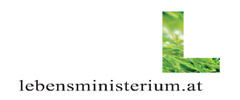CSD 18: Report of the United Nations Commission for Sustainable Development reflects input by Women and NGO major groups
The UN CSD 18th session focussed on the problems and needs for global action in the areas of chemicals and waste management, mining, transport and consumption and production.
11.06.2010 |Sascha Gabizon
WECF and partners from Ec-Accord Russia, BaliFocus Indonesia, Eco-Forum Kazakhstan and Voices of African Mothers (VAM) Ghana, were active in providing views and recommendations from civil society. WECF, VAM and BIC are currently chairing the women's major group, one of the 9 official major groups which get speaking slots alongside the ministers and government representatives.
The official report of the Commission for Sustainable Development, the so-called "Chair's Summary" has been published, and reflects many points brought in by the Women's and NGO major group speakers.
In the part on Chemicals Paragraph 99 addresses the concern that currently too little is know about the potential risks of nanoparticles. Paragraph
108 recommends that new financing arrangements need to include the internalization of costs, paragraph 111 says that there is a need to manage chemicals within the entire lifecycle. Also, the Chair calls for speeding up the process of addressing the problem of obsolete pesticides that threaten the health of millions of people and the environment, which is a result of unsound chemicals management and pesticide overconsumption.The women's major group were the only one's to call attention to the great problems of radioactive pollution from uranium mining. Their concerns were echoed in the Chair summary which recommends that:
303. A stronger monitoring of mining is needed at the global level, through a balanced structure which includes all parties concerned. There is need for an independent monitoring body for uranium mining activities. The United Nations could develop a global instrument for the cleanup of closed and abandoned mines and uranium waste.
Furthermore on mining the Chair says:
148. Good governance at all levels is a necessary condition for mining to contribute to sustainable development, including rule of law as well as ethical, accountable, and transparent behavior by governments and companies while respecting national sovereignty. Enhancing the participation of stakeholders, including local and indigenous communities and women, in order for them to play an active role in mining development, is critical.
170. More work and guidance is needed in such specific areas as: designation of areas of high ecological or cultural value as no-go areas to mining; rehabilitation of abandoned and orphaned mines and proper management of waste stockpiles; development of effective and efficient approaches to the funding of mine closure; enhancing EIAs and SIAs; improving health and safety of mine workers, respecting ILO Convention 176, including in the artisanal mining sector; and protecting the rights of women, especially women workers, and eliminating child labor.
In many places of the Chair's summary the need for specific attention and involvement of women is reflected:
28. The need to promote gender mainstreaming and equitable approaches in regional activities was highlighted. It was noted that indigenous peoples, especially women and children, are disproportionately vulnerable to toxic chemicals from industrial activities and mining and do not have adequate participation in decision-making processes. It is important to ensure that participation modalities are sensitive to cultural values and practices, whilst assuring the fullest participation of women
296. There is a need to ensure participation of all stakeholders, including local communities, indigenous peoples and in particular women, throughout the mining cycle, starting with the drafting of mining rules and public consultation before projects begin.
69. Basic transport infrastructure and services are still inadequate or lacking in many rural areas of developing countries, making it difficult for the rural poor, including women, youth and children, to access basic services, including those related to health and education, and for workers to access jobs. About 1 billion people live more than two kilometers away from the nearest all-weather road. Lack of adequate rural transport infrastructure perpetuates poverty, poses constraints on the marketing of agricultural produce and other income generation opportunities, and thus hampers efforts to achieve the internationally agreed development goals.
95. Chemicals have potentially significant positive as well as negative impacts. On the one hand, chemicals can contribute to the health of humans, livestock and other animals, agricultural productivity, energy efficiency and other aspects of sustainable development. On the other hand, the adverse consequences of unsound management of chemicals for the environment and human health can be significant and long lasting. These can be most acute in developing countries and for countries with economies in transition. The poorest, indigenous peoples, women and children are disproportionately at risk.
119. The absence of sound waste management poses risks to human health and well- being, endangers ecosystem resources, contributes to climate change, accelerates land degradation and can adversely impact economic activities. Given the proportionately high participation of youth and children, women, and indigenous people in the informal sector of waste management, the brunt of these negative impacts disproportionately falls upon these groups within society.
143. Education - formal, non-formal and informal - and public awareness campaigns are vital for changing behavioral attitudes and promoting waste minimization and safe, environmentally-sound disposal, and should therefore be enhanced. Partnerships and dialogues between major stakeholders within society, such as youth and children, women and indigenous people, are crucial in influencing and changing such behavioral attitudes.
211. The themes under review relate to the Millennium Development Goals (MDGs). Thus, sound management of chemicals and waste management can contribute to environmental sustainability (MDG Goal 7). Sound use of chemicals can reduce child mortality (MDG Goal 4) and development of transport infrastructure can help reduce maternal mortality and improve maternal health (MDG Goal 5) and support universal primary education (MDG Goal 2) and full participation of women in all these processes will help achieve gender equality (MDG3). Decent work is key element for all the MDGs.
221. Gender equality has been a prominent cross-cutting issue for the current CSD cycle and inequality has proven to constitute a constraint to growth and poverty reduction. Bringing the principle of gender equality into all aspects of social sustainability policy will enable all groups in society to participate and share in economic and social development. Thus, empowering women should be given priority attention by governments, so they are able to contribute as active and innovative agents of change in society.
228. Enhanced participation of all stakeholders in decision-making is necessary, particularly local and indigenous communities and women, and an integrated approach to mining for SIDS is needed.
233. Among areas identified for attention were: the need for greater recognition of the contribution of women and youth in partnerships; increased engagement of indigenous peoples; and expanding multi-stakeholder partnerships that benefit the poor. A strong institutional framework, and increased resources and capacity development to support and strengthen the involvement of these groups was called for.
252. Ministers presented many good practices and successful experiences, initiatives and partnerships on the thematic cluster under consideration and stressed a number of broad themes to guide the Commission in its deliberations at its nineteenth session, notably the importance of: a sense of urgency in the face of multiple crises and challenges; strong political will at the highest level; a participatory approach involving all stakeholders, including full participation of women in decision-making; and strengthened global governance of sustainable development.
Related News
Meet the Winners of the Gender Just Climate Solutions Award at COP24
On the 70th anniversary of the Universal Declaration of Human Rights, we awarded Gender Just Climate Solutions Winners at the climate negotiations in Katowice, Poland
11.12.2018
Invitation: Gender Just Climate Solutions Award 2018
10 December, COP24 Katowice
04.12.2018
Getting to the Future We Want
4-7 November, Brussels: European Environmental Bureauís (EEB) Annual Conference
12.11.2018
GoodFood4All
WECF and partners all over Europe start GoodFood4All Campaign
06.11.2018
#Ruralwomen: join our Women2030 campaign!
15.10.2018







































